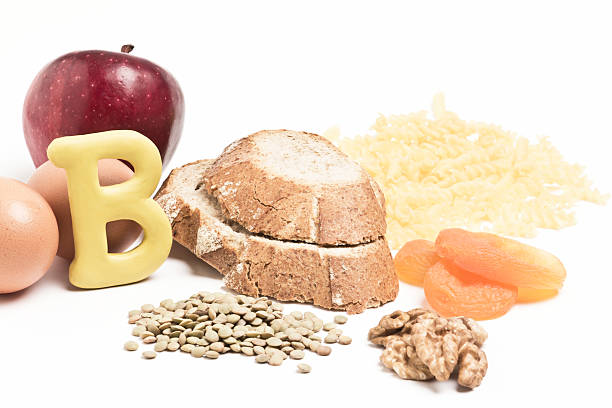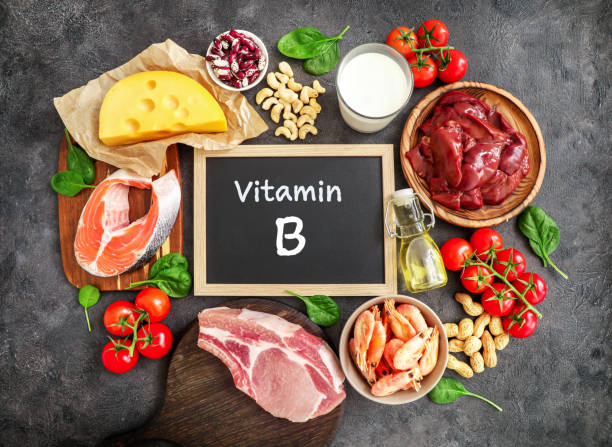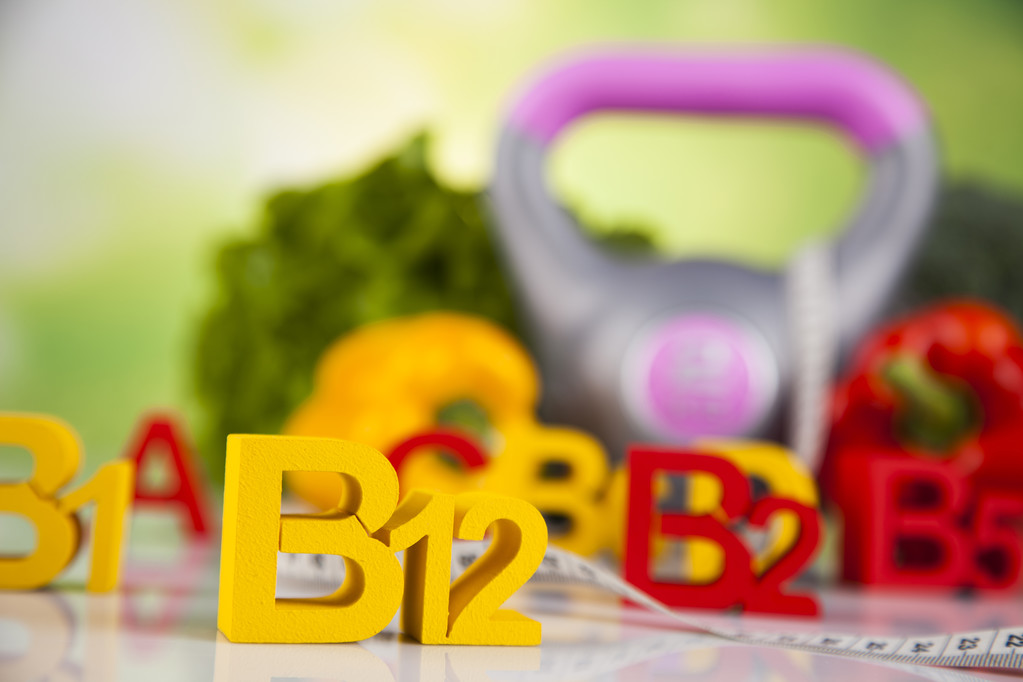Tips and foods against vitamin B deficiency at a glance. Vitamin B is a vitamin group made up of eight vital substances. Each of the substances can be lacking and is to be compensated for in a targeted manner.
Home remedies and foods with vitamin B
Vitamin B6, B12, and folic acid are particularly important for your health and well-being. The metabolism is disturbed in the event of a deficiency. Stress from long-term stress or caring for relatives is often the result.
The vitamin B deficiency in water-soluble B vitamins
Vitamin B is a vitamin group consisting of eight vital substances. These are the vitamins B1 (thiamine), B2 (riboflavin), B3 (niacin, nicotinic acid), B5 (pantothenic acid), and B6 (pyridoxine), B7 (biotin), B9 (folic acid), B12 (cobalamin). Women in the first trimester of pregnancy and who want to have children should take 0.4 milligrams of folic acid a day. Vegans may need more vitamin B12. However, excessive doses of B6, folic acid, and nicotinic acid can cause nerve damage. Our tips compensate for a deficiency.

1) Folic acid (B9) in fortified salt
Too much salt is not healthy, so the right salt is important. Salt enriched with folic acids, such as the Bad Reichenhall iodized salt, contains 100 micrograms of folic acid. The German Society for Nutrition recommends 400 micrograms for young people and adults and 600 for pregnant women who can hardly manage with nutrition alone.
2) Folic acid in food
Green leafy vegetables contain a lot of folic acids. Because the vitamin is sensitive to light, air, and heat, eat it fresh or raw. Add legumes and whole grains to your diet. At the top are beef liver (590 micrograms/100 g), wheat germ (520), and chickpeas. Egg yolks are also rich (a 60g egg has 40 micrograms). Many multifruit and multivitamin juices contain folic acid. Frequent consumption and additional vitamin preparations could become too much. Preparations that contain other vitamins or minerals in addition to folic acid have no effect with an adequate diet.
3) Folic acid in the vitamin supplement
With the exception of “Radiopharm” (400 micrograms per tablet), the folic acid preparations tested by Stiftung Warentest were not recommended because they exceeded the recommended intake.
4) Food for vitamin B1 deficiency
Typical symptoms of vitamin B deficiency are also neurological disorders, cardiac muscle weakness, and general muscle atrophy. Memory can suffer in alcoholics. In addition to less alcohol, foods such as fish, grain products, legumes, and pork should be eaten more often.
5) Vitamin B2 for fat and protein breakdown
One to two milligrams of B2 a day protects red blood cells and the lens of the eye and creates healthy skin, mucous membranes, and intact nails. A shortage is rare in this country. Yeast, cereals, legumes and milk, cheese, and offal contain a lot of vitamin B2.
6) Vitamin B3 for more energy
The need for niacin is energy-dependent. It converts supplied fats, carbohydrates, and proteins into energy. A varied, fresh diet easily covers the need. With animal foods such as liver and fish, meat and whey products, as well as whole grain products, legumes and potatoes, mushrooms and bananas, and coffee, you are there.
7) Vitamin B5 for a weakened immune system
The body needs B5 or pantothenic acid for carbohydrate, fat, and protein metabolism and also for wound healing and a healthy immune system. The vitamin is found in almost all animal and plant foods. The innards such as liver and kidneys, as well as herring, yeast, egg yolks and legumes, cauliflower, and mushrooms, are particularly good.
8) Vitamin B6 for protein metabolism and formation of amino acids
The body needs one to two milligrams per day. The need is usually covered with a balanced diet, even in pregnant women or athletes. There is a lot of vitamin B6 in yeast, cereals, bananas, and vegetables as well as in offal, milk, and eggs.
9) Vitamin B7 Biotin for hair, skin, and nails

The best way to meet your vitamin B7 needs is with a fresh, balanced diet. Food rich in biotin is legumes, whole grain products, soy products, egg yolk, yeast, and nuts.
10) Vitamin B12 for new cells as well as functioning nerves
B12 is important for the synthesis of genetic material, cell renewal, and nerves. In addition, the folic acid needs the vitamin for activation. Vitamin B12 is found almost exclusively in animal products. Only sea buckthorn is an exception when processing the fruit peel.
11) Vitamin B overdose
A vitamin B deficiency cannot occur with a healthy diet, but an overdose can cause damage. Most B vitamins are safe. Exceptions are vitamin B3, B5, B6, and folic acid.
High doses of vitamin B3 cause itching, nausea, heartburn, and bouts of redness and hot flashes. Excessive intake of vitamin B5 leads to gastrointestinal disorders. Prolonged vitamin B6 overdose is neurologically noticeable. A folic acid excess leads to insomnia, nervousness, and gastrointestinal problems. Too much folic acid impairs the effectiveness of anti-epileptic drugs.








